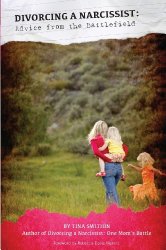Mental abuse starts early. Recently, our daughter conveyed to me something that was bothering her. It’s a long story. Let me start at the beginning.
Her Daddy told her that she could get a kitten at his house. She was excited. Weeks passed. No kitten. Kittens are easy to come by around here. He once sent her a picture of a kitten. She liked it but it was a boy and she wanted a girl. They decided to wait for a girl kitten. Still no kitten. I didn’t think anything of it. I figured he was using the excitement of getting a kitten to get her to want to come to his house and was dragging it out. That’s harmless, I guess, to a degree, if you do in fact keep your promise and follow through with a kitten in a reasonable amount of time. I’ll admit, I’ve used the kitten to get her excited about going to Daddy’s so it wasn’t so hard on her. However, the problem started a few days ago.
One day, during this kitten-in-waiting time period, while at my house on the phone with her Daddy, our daughter was saying, “I love YOU more than I love YOU” pointing first to me, then to him. She thought he wouldn’t know what she was saying since he couldn’t see her. I of course, tried to stop her. I knew he would be suspicious enough to ask her what she was saying when she got back to his house. Since his goal in life is to get our daughter to love him more than me and choose to be with him, I knew he would be all over her when she got back, but I never heard anything about it until a few nights ago.
Our daughter was upset. I asked why. When she finally calmed down enough to tell me, she said that she was crying because Daddy had erased her pictures of the boy kitten that she had enjoyed looking at on his phone. I asked her why he had done that. She said, “Because I lied.”
I asked her what she had lied about. She said, “Because I said I loved you more than I loved Daddy.” Now, I’m not in to making a child CHOOSE a parent to love. I could never pick one of my parents to love more. That’s ridiculous, so, I wouldn’t ask her to choose. Nevertheless, I asked her if this WAS a lie. “No.” was her reply. Turns out, what he was upset about was the fact that she was saying that she loved ME more, not HIM. She wasn’t lying. He had convinced her that she was lying and the she deserved to be punished. Her punishment was deleting the pictures of the kitten from him phone. She was so upset. I asked her if she cried when he did it. She said, “No, but my throat was hurting.” (She had a lump in her throat). I don’t know if he just deleted the pictures of the kitten on the phone or if the whole prospect of getting a kitten is gone now, but the fact that he had convinced her that she had lied when, (sounds to me like) she DIDN’T and that’s what he didn’t like. He didn’t want to hear the truth. He wanted to hear that she loved HIM more and he found a way to punish her for not loving him the most, as stupid as that is, and making it look like it was because of a VALID reason, like her lying.
She tells Grandma that she loves my boyfriend more than she loves Daddy because Daddy is mean to Mommy. I’m sure she loves her Daddy, but I found this to be an interesting observation on her part. I don’t tell her that he was mean to me. I told her that we didn’t get along when she asks about it. She has drawn her own conclusions. I’m proud of her for seeing through it. I hate that she HAS to.
Such is life with a narcissist!



